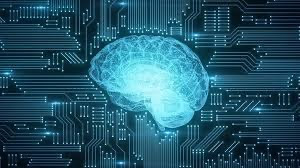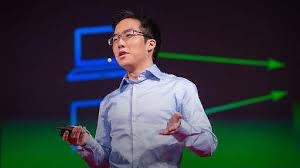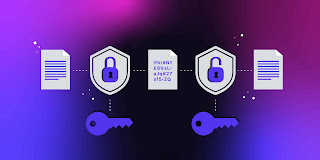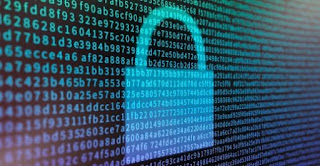Saturday, November 30, 2024
Blog 9: EOTO2 Reaction
Blog 8: EOTO2 Post
Echo Chambers
In today's media, there are a variety of sources that reflect all different beliefs, but what if you only surround yourself with media that only reflects your own? This could cause you to be in an echo chamber. An echo chamber is when you only hear ideas or opinions that match your own, over and over again. Instead of hearing a variety of viewpoints, you just hear things that confirm what you already think. While this can feel comforting and you agree with everything being said, it also limits your understanding of the world.
How do Echo Chambers affect our thinking
Echo chambers can prevent people from seeing the full story. When you're constantly exposed to biased or misleading information, it’s easy to believe things that aren't true. According to GCF Global, they state, “Echo chambers can create misinformation and distort a person’s perspective so they have difficulty considering opposing viewpoints and discussing complicated topics.” For example, sometimes I watch news that supports one side of an issue, because of this, I am not seeing both sides, which impacts how I view certain issues. Echo chambers can affect how people think critically. When people hear the same ideas over and over, they stop questioning them. It becomes easy to just accept things without really thinking about them. Without different perspectives, we can miss important details or misunderstand issues.
Social Media
Politics
Echo chambers limit our understanding of the world. Whether it’s on social media, in politics, or online sources, echo chambers prevent us from hearing new ideas and can make us believe things that aren't true. When we only surround ourselves with content that confirms our beliefs, we stop thinking critically about important issues. Personally, I have fallen into an echo chamber before. It wasn’t until recently where I started to see from a global perspective rather than having tunnel vision for one point of view. To avoid falling into an echo chamber, society needs to make an effort to look for different viewpoints, talk to people who think differently, and be open. By doing this, society can better understand the world and have an open mind.
Blog 7: EOTO1 Reaction
EOTO1 Reaction
World Wide Web
I was very interested in the presentation about the world wide web. It was founded by Tim Berns Lee. In the presentation, Jake explained the launch of the World Wide Web changed the Internet from a small network to a global platform that affects every part of our lives. It has brought many benefits, like easy access to information and better connections, but it also means we need to use it responsibly. He emphasized that as we move forward, we must make sure the Web remains a force for good. When I first started using the world wide web, I noticed how there were some things that should probably be censored to keep young audiences safe. Like Jake said, we need to make sure that the Web stays a positive force.
Facebook and Instagram
Facebook and Instagram was one of the presentations that grasped my interest. I loved this presentation because it related to the websites that I use everyday. Facebook made it easy for people to instantly share messages and pictures with others around the world. It also gave businesses a new way to promote themselves using Facebook’s algorithms. Personally, I don’t use facebook as much as I use other social media platforms. Instagram is one of my most request used. Tatum discussed that Instagram makes it easy to take a photo, add a filter, and share it with friends and family. It created a new way to communicate, focusing on images instead of just text or business.
Monday, November 25, 2024
Blog 6: EOTO1 Post
VCR and Video
There was a case in 1984 called the “Betamax case" which Universal City Studios sued Sony corporation, claiming that Betamax VCRs encouraged people to illegally copy movies and TV shows. The Supreme Court ruled in favor of Sony, saying that recording shows for personal use was fair use. This made sure that people could record TV shows without breaking copyright laws, which helped make VCRs and similar devices popular in homes.
Overall, VCRs changed history. They changed how people watched movies and TV shows, giving viewers more control and helping to shape the entertainment industry for the future. Before the VCR, people had to wait to watch specific shows are certain times. It also helped the entertainment industry grow. As more people bought VCRs, there was a higher demand for VHS tapes, which helped other businesses grow. The VCR was a turning point in history, and was the starting point to more efficient technology.
Blog 5: Age of AI
Age of AI
Sunday, November 24, 2024
Blog 4: Privacy
Think Your Emails Private? Think Again.
Friday, November 1, 2024
Blog 3: Eight Values of Free Expression
Eight Values of Free Expression
1. Marketplace of Ideas
John Milton said that letting all ideas compete helps the truth come out stronger. When people can discuss freely, they find out what is true. I believe that this is a great way to help collaborate through ideas. According to David Schultz, he states, “This concept draws on an analogy to the economic marketplace, where, it is claimed, through economic competition superior products sell better than others.” Just like in a marketplace where better products are more successful because they compete against each other, the same idea applies to ideas and opinions. When different ideas are allowed to compete, the stronger or better ideas will become more popular or accepted over time. This stands out to me because I am a strong believer of talking through things and letting everyone be heard, so this is important to me.
2. Participation in Self Government
Alexander Meiklejohn believed that for democracy to work, citizens need access to information. If they can’t hear different opinions, they can’t make good choices in elections. This stood out to me because it talks about how citizens need to be educated on all points of views before voting in elections. According to Center for Civic Education, they state, “We should be sure the people we "hire" (elect) can do the job we are hiring them for. Once they get the job, we should keep an eye on them to make sure they are doing that job. If they do a good job, we may not watch them as closely. If they do a bad job, we may watch them very closely and may even decide to replace them.” They compare electing a president like hiring someone for a job. I believe this is the perfect comparison because I also strongly believe that the people of America need to have a say on who will be running America. The government cannot speak for every single American, so that is why this is important.
3. Promote Tolerance
Lee Bollinger said that protecting all speech, even hateful speech, teaches society about tolerance. Discussing difficult topics helps people understand why some views are harmful. This stands out to me because I agree that having a discussion about it instead of hiding from it teaches us tolerance for these harmful speeches. Since speech is not an action, society has the right to say whatever they want. Because of this, we need to have tolerance. Freedom of speech is a fundamental right, and even when people express harmful or unpopular views, it is protected by law, as long as it is not a threat. According to Ryan T. Anderson, he states, “The United States is a pluralistic society. To protect that pluralism and the rights of all Americans, of whatever faith they may practice, religious-liberty laws are good policy. Liberals committed to tolerance should embrace them.” He is saying that the United States has many different cultures, beliefs, and religions. To protect this diversity and everyone’s rights, laws supporting religious freedom are important. It suggests that people who care about tolerance should support these laws so everyone can practice their beliefs freely.
Blog Post 11: Final Post
Final Post: Is Technology Healthy? Technology is a big part of our lives and has changed the way we live. As a college student, I use techno...

-
Eight Values of Free Expression 1. Marketplace of Ideas John Milton said that letting all ideas compete helps the truth come out stronger....
-
The Supreme Court What did I learn? One thing that I learned was how cases are chosen for review. I learned that the Supreme Court gets thou...
-
Echo Chambers In today's media, there are a variety of sources that reflect all different beliefs, but what if you only surround yourse...























